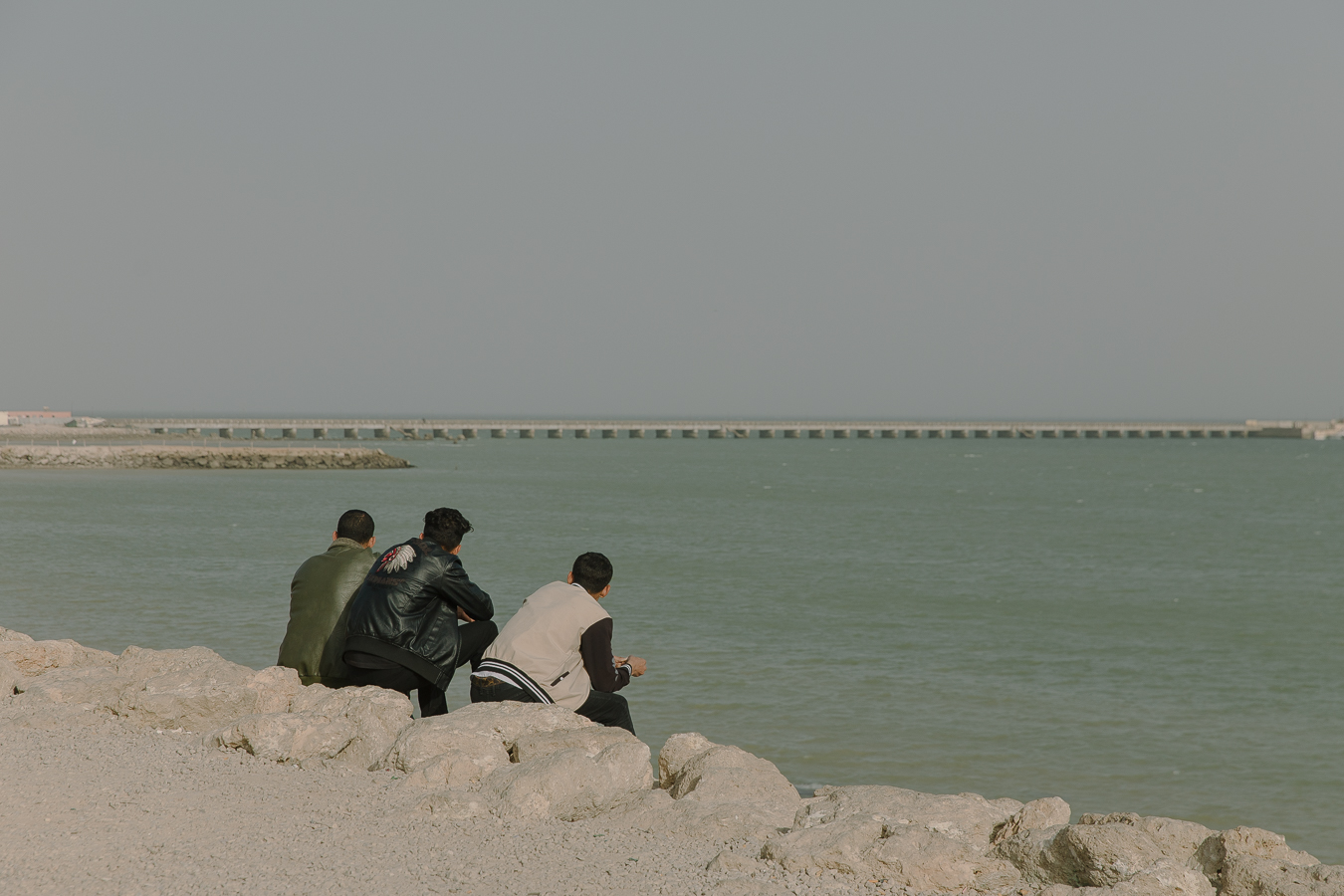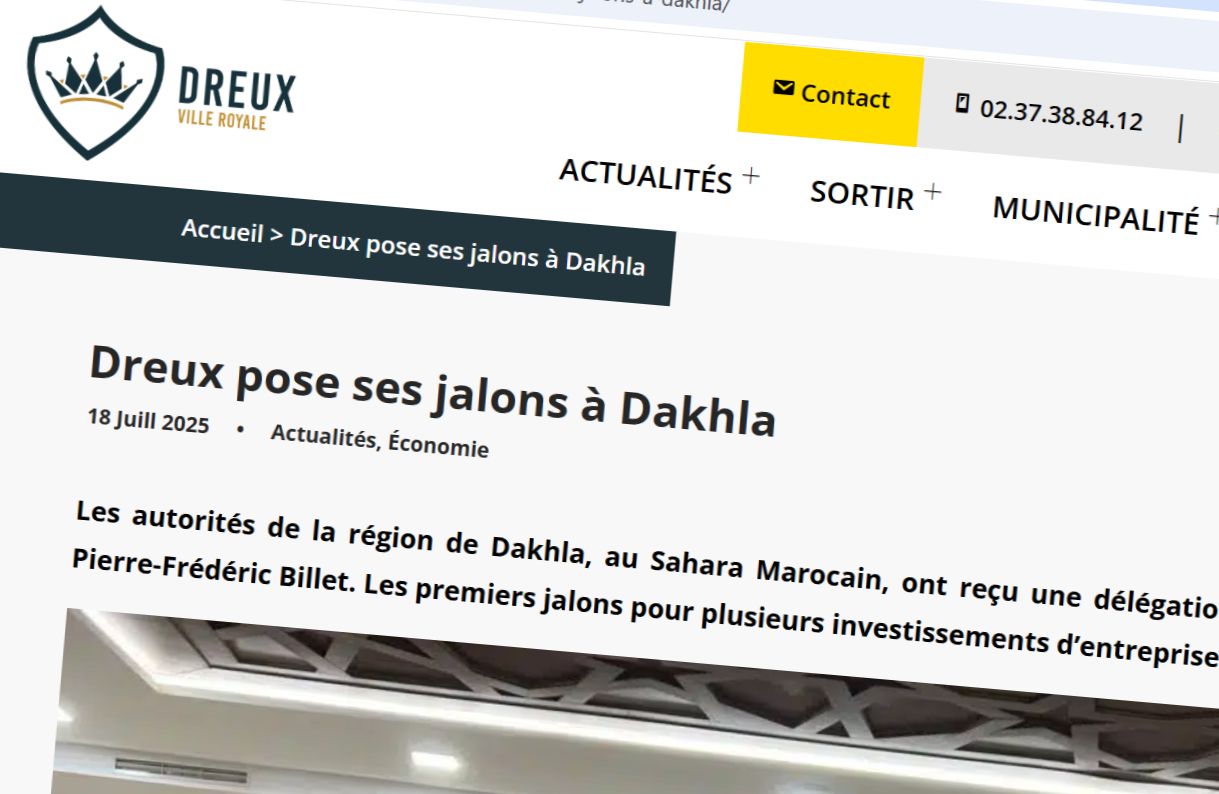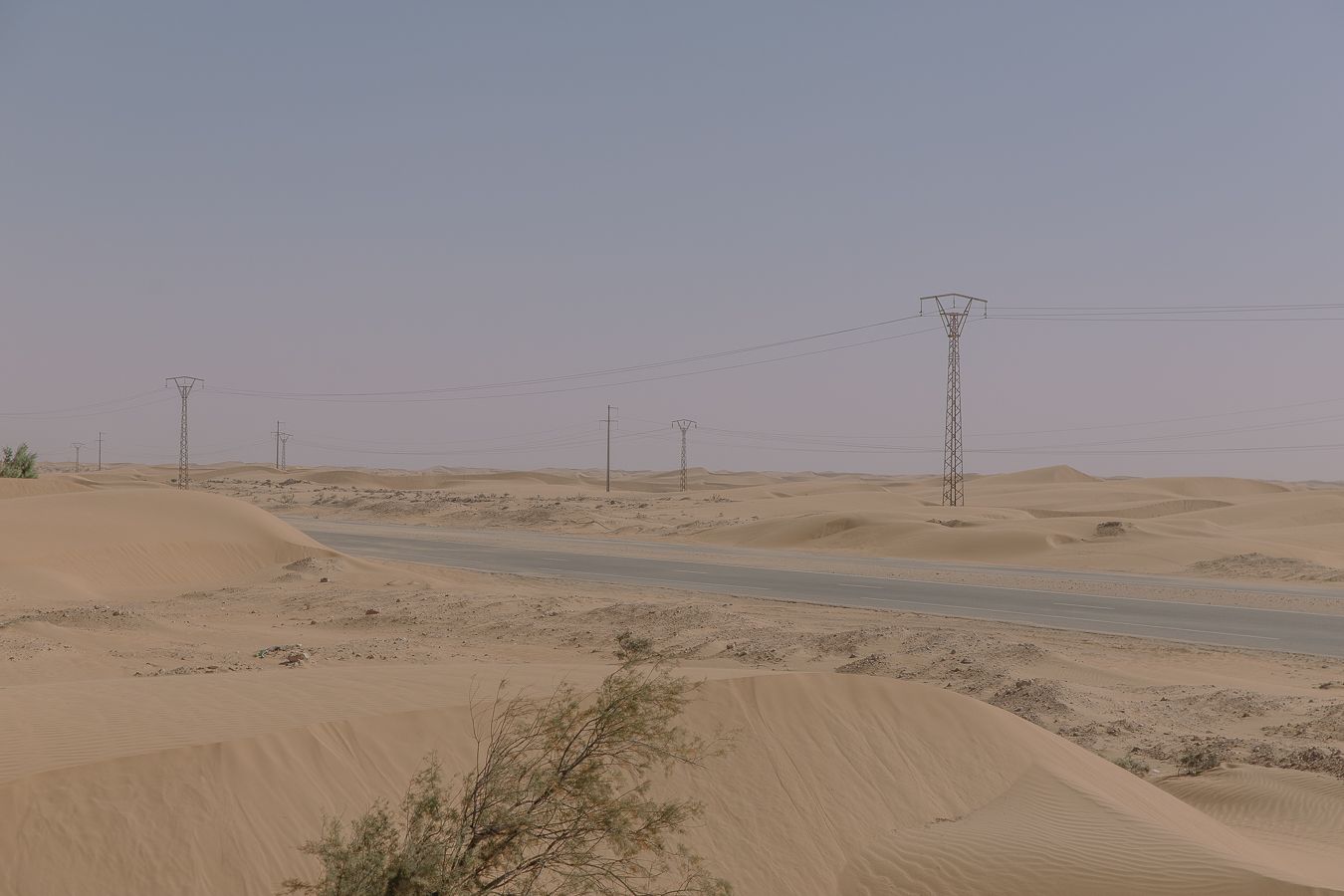
The African Development Bank has not funded the construction of a controversial Moroccan energy cable in Western Sahara, even though public tender documents suggested that it would.

The African Development Bank (AfDB) announced on its own website on 28 April 2020 that it had granted a loan to the Moroccan government's electricity and water agency ONEE for the construction of an energy transmission line connecting Western Sahara to Morocco. The information appeared in an ONEE tender document clarifying that the AfDB funded project covers Hagounia - a rural town in Western Sahara.
The transmission line is controversial as such a cable will make Morocco dependent on energy that it produces in Western Sahara, through projects on occupied land.
Western Sahara Resource Watch (WSRW) wrote about the controversy in 2021.
However, now, this information is seemingly not correct, according to the bank itself. From what WSRW has learnt, one of the bank's owners has received the clarification from the bank that the funding for the new transmission line in fact does not cover the location of Hagounia at all.
"Hagounia is not in the perimeter of the project financed by the Bank", it stated.
It informed that the line that is supported will be built between “a new substation located in the South of the Khenifiss National Park and Tan-Tan II substation”, both in Morocco proper.
It was also noted that the “Bank’s official practice is that it does not knowingly or consciously finance projects on the territory of the Western Sahara. Beyond this practice, the Bank does not have any official policy in this regard. Consequently, the AfDB has currently no project, investment or partnership in this territory.”
The bank is owned by the 54 African states and 27 non-African states.
WSRW has not been successful in obtaining clarifications directly from the bank. WSRW sent a letter to the AfDB on 3 May 2021, asking whether it was aware of the full scope of the project as described in the tender document, namely: connecting the energy plants in occupied Western Sahara to Morocco's electricity grid. No answer was received. The letter was sent again on 28 April 2022 and 28 January 2023, still without response. WSRW also contacted AfDB in 2015, without answer.
In the most recent letter, WSRW refers to the landmark ruling of the African Court for Human and Peoples' Rights on 22 September 2022 which concluded that Morocco's occupation of Western Sahara is a serious violation of the Saharawi people’s right to self-determination and independence, and inquired whether it is time for AfDB to establish a policy on the matter.
The bank's charter from 1963, Article 14, establishes that the Bank "may provide or facilitate financing for any regional member […] in the territory of any regional member”. WSRW's latest letter asked, on a general level, whether it would be compatible with the charter of the AfDB to support projects of a member outside of the national territory of a member state.
The AfDB website's country profile still suggests - erroneously - that Western Sahara is part of Morocco [or download].
A few months after the above statements were communicated to its owner, the bank published documents relating to environmental and social impact assessments regarding 8 different sections of Morocco's "Projects of Reinforcing the Networks in the South and Centre-Casa". The documents were made available on 9 November 2022 via a particular page on the website of the bank that summarises the documents on the programme “P-MA-FA0-008”.
Two of the section studies that were published cover the territory of Western Sahara. One relates to the 128 kilometer long cable from Tan Tan in Morocco and Hagounia in Western Sahara [or download]. The other relates to the 127 kilometer long cable between Hagounia and “Laayoune II” - both locations in Western Sahara [or download].
The author of the report - a Moroccan consultancy firm - writes in the opening of the assessments that they have taken into account the African Development Bank's evaluation rules. Both documents contain a separate chapter on the legal aspects of the cable, but make no reference whatsoever that the two sections of the project takes place outside of Morocco, on occupied land, and that, hence, references to Moroccan legislation or land ownership are questionable. All references in the study fail to take into account that the project is going to be issued on lands owned by the people of Western Sahara.

It is not known why these PDFs were published on the website of the African Development Bank, considering the bank's statement to its owner that it is not engaged in the territory.
The two files contain numerous maps of Western Sahara as part of Morocco - a position not shared with the United Nations, the African Union or the African Court for Human and Peoples' Rights.
The lack of answer from the African Development Bank to WSRW is mentioned in the larger report 'Greenwashing Occupation' that WSRW wrote in 2021 regarding Morocco's rapidly growing energy infrastructure in the territory that it holds under illegal occupation.
Since you're here....
WSRW’s work is being read and used more than ever. We work totally independently and to a large extent voluntarily. Our work takes time, dedication and diligence. But we do it because we believe it matters – and we hope you do too. We look for more monthly donors to support our work. If you'd like to contribute to our work – 3€, 5€, 8€ monthly… what you can spare – the future of WSRW would be much more secure. You can set up a monthly donation to WSRW quickly here.
Canary trade mission to legal minefield
A publicly organised mission will take Canary companies into occupied Western Sahara later this month.
French publicly-owned firm plans energy project in occupied Western Sahara
The French town of Dreux considers ignoring a ruling in the French courts and to engage with a controversial energy operation in occupied Western Sahara.
Morocco pushes enormous green hydrogen plans in occupied Western Sahara
The Moroccan government has confirmed several green hydrogen projects totalling 20 GW of renewables and up to 8 million tonnes of derivatives - many planned in occupied Western Sahara.
Morocco plans massive AI center in occupied Western Sahara
A 500 MW hyperscale data center for Artificial Intelligence is being envisaged in the occupied territory.



